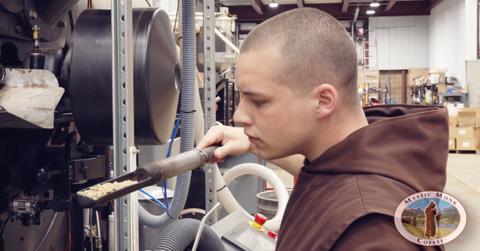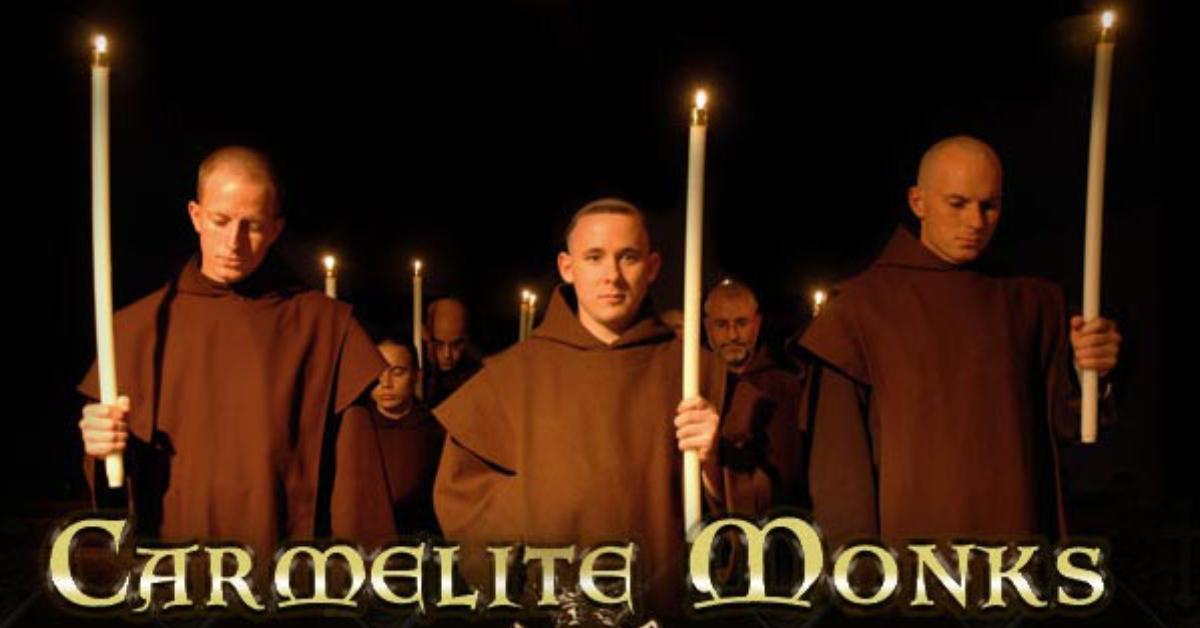Mysterious Scandals Surround Mystic Monk Coffee and the Carmelite Monks Who Make It
Updated Nov. 13 2023, 4:40 p.m. ET
Content warning: This article mentions allegations of sexual misconduct.
The Gist:
- Mystic Monk Coffee, produced by Carmelite monks in Wyoming, is a fairly small — yet popular — coffee brand.
- However, the Carmelite monks who make the coffee have been involved in a number of scandals.
Coffee offers the perfect pick-me-up to help start your day off right. However, the coffee industry is notorious for taking advantage of laborers who work in the fields. That’s why coffee drinkers need to ensure the coffee they buy is sustainably-sourced and fair trade, meaning the workers growing and harvesting the coffee are fairly compensated.
Mystic Monk Coffee, a small brand produced by Carmelite monks in the Rocky Mountains of Wyoming, was long considered ethically sourced coffee — until a number of scandals raised questions on the monk’s accountability and transparency. Here’s “the tea” (if you will) on the Mystic Monk Coffee scandals.
Wyoming's Mystic Monk Coffee scandal, explained:
The controversy surrounding Mystic Monk Coffee involves scandals the Carmelite monks have allegedly been embroiled in regarding misappropriation of funds, the sourcing of their coffee, and allegations of sexual misconduct. However, most of the information available online isn’t from credible sources.
According to Case Study Help, scandals surrounding Mystic Monk Coffee and the Carmelite monks who produce it began in 2011 when the monks were accused of misappropriating funds from selling their coffee. Those funds were supposed to be used to build a new monastery but were used for personal expenses and renovations on their existing building, per Case Study Help.
That said, we cannot verify that Case Study Help's report is legit.
Several websites claim that “investigative journalists” uncovered that the Carmelite monks supplemented ethically-sourced South American coffee beans with “cheaper, lower quality beans from other countries that did not follow the same principled and ecological farming practices.” However, Green Matters could find no legitimate investigations into the company and its operations.
Additionally, a sexual misconduct scandal surrounding the Carmelite monks grew out of accusations revealed in 2020 by a whistleblower who spent four weeks at the monastery.
According to an investigation reported by Church Militant, in a dossier to the bishop of Cheyenne, the whistleblower claimed he witnessed “assault and battery of a fellow monk, false advertising, deceiving parents and inquiring men, monks stripping themselves naked in front of each other, spiritual direction with a priest in underwear, and many other serious concerns.”
That said, these claims have not been confirmed.
What is Mystic Monk Coffee?
Mystic Monk Coffee was launched in 2007 by a small group of Carmelite monks living in a monastery in the Rocky Mountains of Wyoming. According to the company website, the coffee brand was created because the monks were “looking for a way to support their growing community.”
The monks created the coffee brand to raise money to help build a “Gothic monastery in the mountains.” Mystic Monk Coffee became known as a Catholic coffee company, and sales grew. The monks eventually earned enough to break ground on their monastery, which is about half complete today.
Is it OK to buy Mystic Monk Coffee?
Whether you feel ethically comfortable supporting Carmelite monks by purchasing Mystic Monk Coffee is totally up to you.
In “full transparency,” the monks say coffee sales help them finance building their monastery, cover production costs, and provide life necessities for the monks.
If you do feel comfortable buying Mystic Monk Coffee, it is available online, and the monks also sell a line of Mystica teas. Many of the coffees available use beans from Costa Rica, Guatemala, Ethiopia, and Columbia. If you are looking for fair trade coffee, the Mystic Monk Ethiopia coffee is described as fair trade on the company website, while many other Mystic Monk Coffee offerings are not.
Check out Green Matters' guide to fair trade and sustainable coffee here.
This article, originally published on Sept. 7, 2023, has been updated.

